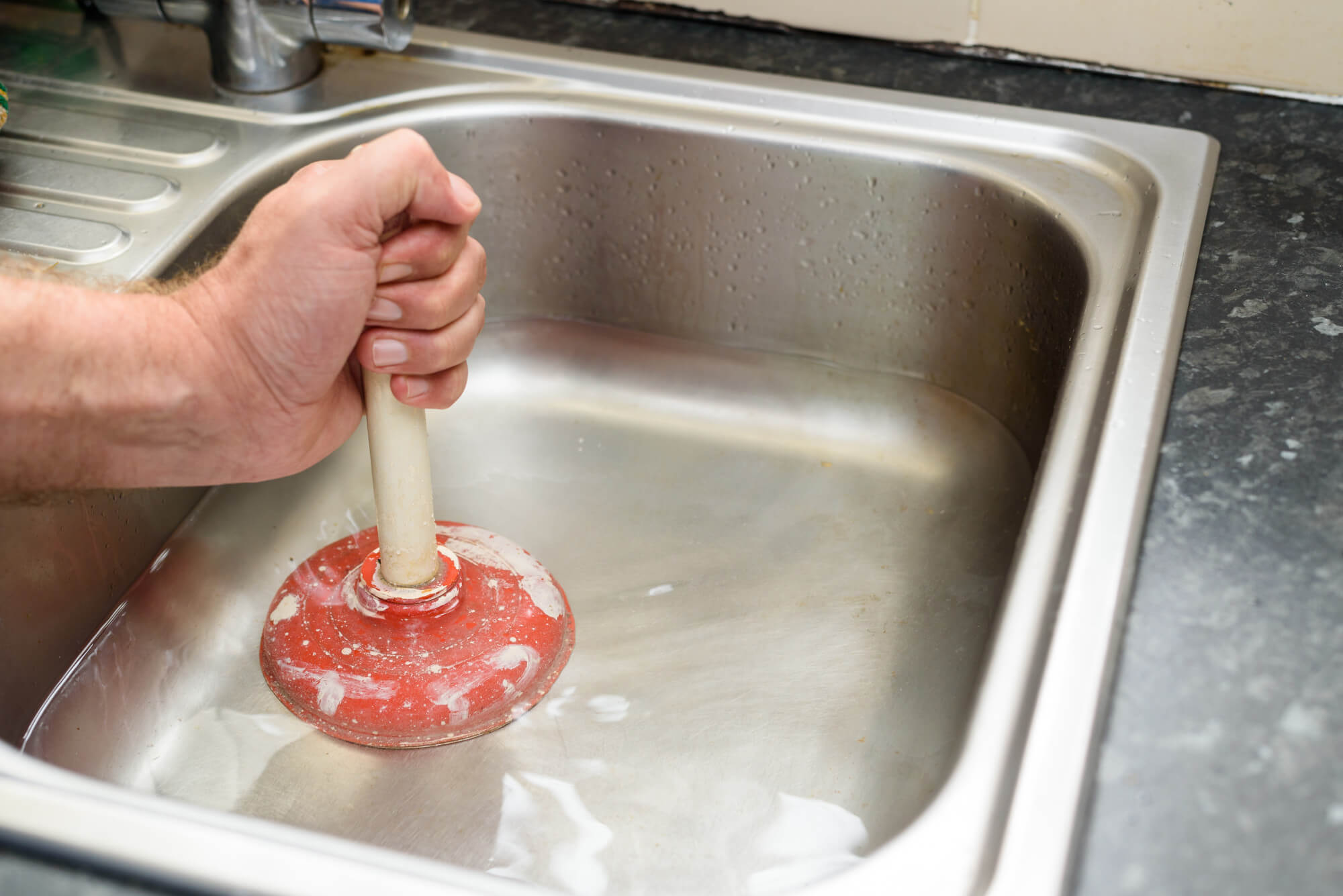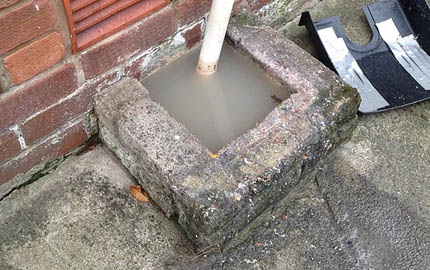What to Address a Blocked Drain Prior to Calling Plumbing Experts
What to Address a Blocked Drain Prior to Calling Plumbing Experts
Blog Article
The content below on the subject of Tips for Dealing with Clogged Drains and Sewer Lines is without a doubt entertaining. Read it for your own benefit and figure out what you think of it.

Intro
Taking care of a blocked drainpipe can be a frustrating experience, interrupting day-to-day tasks and possibly causing damage to your property. Nevertheless, prior to reaching out to pipes experts, there are steps you can take to deal with the concern on your own. In this guide, we'll explore do it yourself solutions and preventive measures to tackle an obstructed drain successfully.
Identifying the Concern
The first step in addressing an obstructed drainpipe is acknowledging the indicators. Sluggish drainage, gurgling sounds, foul odors rising from drains, or water backing up are common indications of an obstructed drain. Identifying these indications early can aid stop better difficulties.
Choosing the Right Pipes Service
When choosing a plumbing service, take into consideration factors such as experience, licensing, and client evaluations. Choose a credible plumbing with a track record of high quality workmanship and clear prices techniques.
Expense Factors to consider
The price of professional drainpipe cleaning services can differ depending on the extent of the obstruction and the plumbing's prices. Demand quotes from numerous carriers and ask about any service charges to ensure transparency and prevent shocks.
Safety and security Precautions
When trying do it yourself drainpipe cleaning, prioritize security. Wear safety handwear covers and eyeglasses to prevent contact with harmful chemicals or bacteria. Never ever mix different drainpipe cleaning items, as this can create dangerous fumes.
Case Researches
Real-life examples highlight the performance of DIY solutions and the relevance of timely specialist treatment in resolving drain obstructions.
Common Sources Of Blocked Drains
Comprehending the variables that add to drain blockages is essential for reliable resolution. Usual offenders consist of hair, soap scum, grease, food debris, and foreign objects like sanitary products or paper towels. Tree roots getting into underground pipes can likewise create significant clogs.
Do it yourself Solutions
For small clogs, several do it yourself options can be reliable. Pouring boiling thin down the drain can assist liquify oil and debris. Baking soda and vinegar or a combination of salt and baking soft drink can serve as natural cleaners. Utilizing a bettor or pipes serpent to remove blockages is an additional choice.
Devices and Equipment
Having the right tools handy can make DIY drainpipe cleansing extra efficient. A plunger is a functional device for getting rid of blockages in sinks, toilets, and showers. A pipes serpent or auger can get to deeper clogs, while drainpipe cleaning chemicals can be used cautiously for persistent clogs.
Safety nets
To prevent future blockages, taking on safety nets is essential. Install drainpipe guards or filters to catch hair and particles prior to they enter the pipes. Regularly flush drains with hot water to liquify oil buildup, and prevent dealing with grease or strong waste down the drain.
When to Call an Expert
While DIY options can deal with minor obstructions, specific indications show the demand for specialist aid. Persistent blockages, foul odors despite cleansing initiatives, or numerous drains pipes supporting concurrently are red flags that warrant professional treatment.
Conclusion
By adhering to the pointers described in this guide, you can properly deal with obstructed drains and prevent future plumbing concerns. Whether opting for do it yourself services or seeking specialist support, timely activity is key to preserving a healthy plumbing system and protecting the integrity of your home.
10 TIPS TO CLEAR ANY BLOCKED DRAIN
SIGNS OF A BLOCKED DRAIN
Blocked drains can be a source of property damage and health problems for people and pets. The early warning signs of a blocked drain are:
Overflowing
You’re probably quite used to everything flowing down your drain. As a result, it’s quite alarming seeing water spill back up. If your drain is overflowing, that means you’re facing a blockage.
Gurgling sounds
Gurgling sounds indicate that the water is pooling and pushing against the pipe. If you experience this, it’s often the case that a blockage is a problem.
Slow draining
When emptying your sink or taking a shower, you might notice that the water pools for longer than expected. Usually, the problem worsens rather than getting better by itself, which suggests that the blockage is growing larger.
CAUSES OF A BLOCKED DRAIN
Although most people use their drains appropriately, it’s quite easy to make mistakes. Occasionally, everyday use results in blocked drains too. Common causes include:
Tree roots
Tree roots won’t be the cause of local drain blockages, but they can disrupt your main sewage system. The root keeps growing until it breaches the pipe and causes a blockage.
Toiletries
Although toiletries are essential, some can cause drain blockages. For example, nappies, baby wipes and sanitary products should not be flushed down the toilet.
Foreign objects
When you have kids, there’s always a risk they’ll flush something unusual down the toilet. Toys and other foreign objects become lodged in the u-bend, resulting in a blockage.
Mineral Buildup
When minerals such as calcium build up in your pipes, this causes constriction. Although this may not cause a blockage on its own, it does make it easier for other types of blockages to form.
Soap
Although liquid soap may not cause drain blockages, solid soap bars can get lodged within pipes until they eventually break down. One way to stop this from happening is to use a mesh wire guard to cover plug holes.
Natural Debris
Natural debris can fall into your outdoor drains, especially when you don’t use gutter guards. This usually means leaves and twigs, although it can include dirt and grit too.
HOW TO CLEAR A BLOCKED DRAIN
Boiling water
Boiling water is useful for tackling blocked drains caused by grease, conditioner, and some other kinds of toiletries. This is because these substances have a low melting point, and the extreme heat helps to break them up. Boil a kettle with water and pour it down the drain to shift the blockage.
Natural cleaners
You can use some natural cleaners to create a fizzing effect that breaks drain blockages apart. Try pouring hot water down the drain, then follow it with one cup of bicarbonate of soda and a cup of vinegar. Leave it for ten minutes, then chase it with more hot water. A combination of the hot water and the natural cleaner mixture can break blockages up.
Caustic cleaners
Some stores sell caustic cleaners that take stronger action against drain blockages. It dissolves grease, fat, and oils, making it ideal for tougher blockages. Always follow the instructions on the packaging and ventilate the room before starting.
Plungers
As a simple yet effective tool, plungers can help to dislodge local blockages. They work by forming a seal around the plug hole, followed by a vacuum effect that removes the blockage.
DIY drain snake
You can make a DIY drain snake out of any thin metal wire, such as a coat hanger. Leave a hook at the end of the snake and insert it into the plughole. Try using it to fish out local blockages made of hair. This approach is most effective in showers.
https://preciseservices.com.au/10-tips-to-clear-any-blocked-drain/

I am just very taken with and I'm hoping you enjoyed my page. Do you know about somebody who is excited by the topic? Take a moment to promote it. I love reading our article about What I learned from trying to deal with a clogged drain.
Click Here Report this page